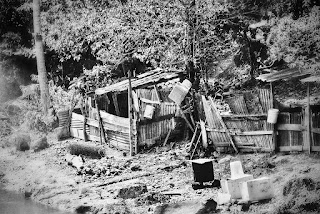Nestled in the heart of the Caribbean, Jamaica's allure extends far beyond its stunning beaches and vibrant culture. The island nation is also home to a diverse housing market that plays a crucial role in shaping the lives of its residents. In recent years, the demand for affordable housing in Jamaica has gained significant attention, as citizens and policymakers grapple with the challenges of creating a sustainable and equitable housing landscape.
The Current Housing Landscape
Jamaica's housing market is characterized by a range of housing options, from traditional single-family homes to modern condominiums and apartments. However, despite this diversity, a pressing concern remains: the affordability of housing for a large segment of the population. The cost of living in Jamaica, coupled with limited resources and land availability, has made homeownership a distant dream for many.
Demand for Affordable Housing
The demand for affordable housing in Jamaica is fueled by a combination of factors. Rapid urbanization has led to increased migration to urban centers, where job opportunities are concentrated. This influx has strained the existing housing stock, driving up prices and pushing many low-income families to the outskirts, where transportation and access to basic services become challenges.
Moreover, the younger generation's changing preferences and lifestyle choices have contributed to the demand for more affordable and conveniently located housing. Many young professionals and families are seeking housing options that offer proximity to employment opportunities, educational institutions, and recreational facilities.
Government Initiatives
Recognizing the urgency of the situation, the Jamaican government has taken steps to address the demand for affordable housing. The National Housing Trust (NHT) is a key institution that plays a pivotal role in providing housing solutions to citizens. The NHT offers various programs aimed at facilitating homeownership, including low-interest mortgages, housing grants, and rental assistance.
Additionally, the government has sought to promote public-private partnerships to spur affordable housing development. These collaborations aim to leverage the expertise of both the public and private sectors to create sustainable housing solutions that cater to the diverse needs of the population.
Challenges and Obstacles
Despite the efforts to address the demand for affordable housing, challenges remain. One significant hurdle is the availability of suitable land for housing development. The limited land supply, combined with complex land tenure systems, has hindered the efficient allocation of land for housing projects. This scarcity drives up land prices, subsequently impacting the affordability of housing units.
Another obstacle lies in the construction costs associated with building affordable housing. The use of sustainable building materials and techniques, while essential for long-term environmental and economic benefits, can initially inflate construction costs. Balancing affordability with quality and sustainability presents a complex dilemma for developers and policymakers.
Community Engagement and Social Impact
Engaging communities in the decision-making process is crucial for successful affordable housing initiatives. Local residents' input can help shape housing projects that align with the unique needs and cultural values of each community. Furthermore, prioritizing the creation of mixed-income neighborhoods fosters social cohesion and reduces the stigmatization often associated with low-income housing developments.
Adequate housing has far-reaching social and economic implications. Beyond providing shelter, it improves overall living conditions, enhances residents' well-being, and contributes to economic growth. Affordable housing initiatives can create employment opportunities in the construction sector, stimulate local economies, and ultimately reduce the burden on public services.
Innovations and Solutions
Innovations in design and construction methods have the potential to revolutionize the affordable housing landscape in Jamaica. Modular construction, for instance, allows for faster and more cost-effective housing development. By prefabricating components off-site, construction time and waste are reduced, contributing to overall affordability.
Furthermore, exploring alternative financing models can make homeownership more accessible. Collaborative housing models, such as co-housing and community land trusts, enable individuals to pool resources and collectively own and manage housing units, significantly reducing individual financial burdens.
Jamaica's housing market is a dynamic ecosystem shaped by a multitude of factors, from urbanization to government policies. The demand for affordable housing remains a central concern, reflecting the aspirations of countless Jamaicans for safe, decent, and accessible homes. While challenges persist, the concerted efforts of the government, private sector, and communities are paving the way for innovative solutions that can bridge the affordability gap.
As Jamaica continues to evolve, so does its housing market. By fostering sustainable development, promoting inclusivity, and embracing innovative approaches, the nation can work towards ensuring that affordable housing becomes not just a dream, but a reality for all its citizens.






.jpg)


No comments:
Post a Comment